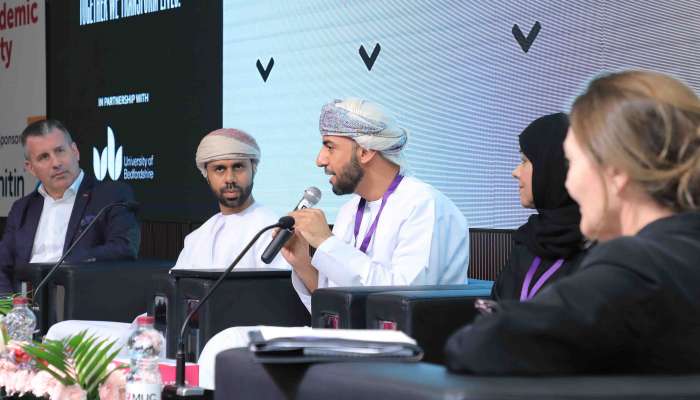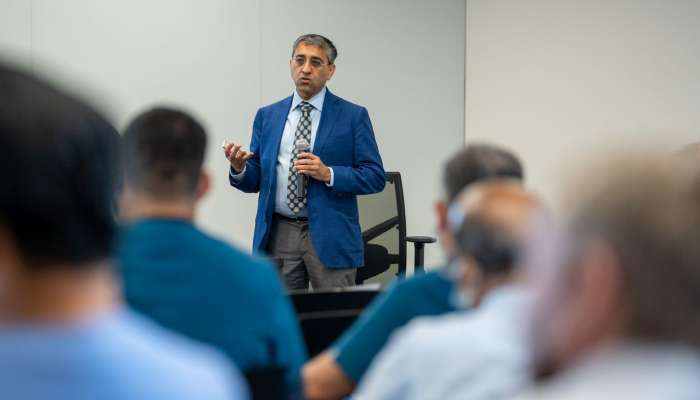

Muscat: The Sultan Qaboos Comprehensive Cancer Care and Research Centre (SQCCCRC) organised the Critical Care Symposium in cooperation with speakers from Mayo Clinic (USA), which lasted for two days.
The Symposium targeted physicians and specialists in critical care across hospitals and medical centres in Oman. Dr. Patrizia Andreoni, Senior Consultant Intensivist and ICU/HDU Head of Department at SQCCCRC said: “The Symposium is a precious occasion for sharing knowledge, improving clinical practice, stimulating new research and creating scientific and clinical networks.”
During the Symposium, speakers presented on different subjects related to the management of critical care of oncology patients, such as Acute Liver Failure, Weaning Protocols for the ICU, Managing Brain Metastases and the management of Febrile Neutropenia as an Oncological Emergency.
Dr. Gerard S Kamath, MD Consultant Anesthesiologist, Mayo Clinic, discussed the definition of acute liver failure, the causes of the disease and types of liver injury, as well as its classifications by course, complications and causes of mortality. Standard and experimental therapies were also discussed. He also highlighted the indications of liver transplant in acute liver failure, and the management of patients awaiting the transplant.
Dr. Gary Vasdev, MD FASA FRCA Consultant, Mayo Clinic, explained the indications for ventilation and the principles of weaning from the ventilator. In addition, he demonstrated an example of a weaning protocol in current practice, and highlighted the necessity of implementing a local weaning protocol according to local settings and population.
On the second day, one of the lectures was about managing "Brain Metastases" presented by Julie Hammack, MD Consultant, Mayo Clinic. A session on "The Management of Febrile Neutropenia as an Oncological Emergency" was presented by Dr. Manish Kohli MD, Professor, University of Utah, USA.
Dr. Julie discussed the big changes happening in the management of brain metastasis in terms of localising, applying diagnoses and treatments. Additionally, the use of corticosteroids and anticonvulsant medications for symptom control was discussed. She also highlighted the different roles of medical oncology (Chemotherapy, Targeted Therapy and Immunotherapy), surgery and radiation oncology (Stereotactic Radiotherapy and Whole Brain Radiotherapy).
Dr. Manish explained the infectious complications of neutropenia in patients, and explained why febrile neutropenia must be treated as a medical emergency. He went through diagnostic investigations, common sources of infections and microorganisms (including bacteria, viruses, fungi and Covid-19), as well as the role of prophylaxis and therapy. He also highlighted the role of a multidisciplinary team in managing non-responding patients.